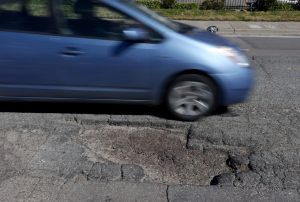California’s math wars are roiling the state’s educational system, with contentious debates over high school curricula.
At issue is whether a “data science” course should be available as a substitute for Algebra 2. The University of California and California State University systems previously accepted data science as an advanced math requirement in place of Algebra 2. But UC and CSU both recently reversed that decision.
Data science proponents cite the high failure rates of Black and Latino students even in Algebra 1. They point to the concrete, real-world applications of data science as an excellent student motivator compared with dull, theoretical algebra topics such as the quadratic formula, arguing that the substitute offers more vital knowledge for our data-oriented society. Two popular data science curricula have emerged: UCLA’s Introduction to Data Science and Stanford’s youcubed.
But as a longtime data science educator, I am appalled at the implications and consequences of allowing data science to substitute for Algebra 2. Among other concerns, it would hurt Black and Latino students, the very group that data science proponents profess to help, teaching them almost no practical or conceptual skills.
Opponents of data science programs like me believe the courses, while effective in engaging students, are so superficial that they amount at best to “data science appreciation” courses. Any substitute for Algebra 2 should be required to be of comparable mathematical sophistication. Even the author of Introduction to Data Science has conceded his course contains“only a dash of math.”
Most of the Black faculty in data science at UC oppose dropping the Algebra 2 requirement for UC admission. Data science risks becoming known as the “Black and Latino math course” among students, parents and teachers. As of March 2023, according to figures I obtained through the state’s Public Records Act, 936 of Los Angeles Unified School District’s 1,091 data science students were Hispanic. Where is the outrage over some populations being shunted into a weaker course?
Actual data science, unlike many of the courses, is more than just drawing a couple of graphs and bar charts. It is a deep, sophisticated field in which even we specialists can make subtle but very serious errors. Students whose math skills are weak simply do not have the foundation to understand the nuances of the subject’s applications.
In particular, the field requires solid skills in basic math topics such as the slope of a line, functions and so on — in other words, Algebra 2. Some college-level and K-12 educators have suggested a compromise: teaching data science alongside Algebra 2 topics, thus stimulating students while developing their math skills. This could be an excellent solution, but the options available are not well-developed.
An integrated course should not just include logarithms and exponentials but should actively relate those ideas to data science applications, where they are used extensively. The method known as logistic regression uses exponentials to help predict whether an event could occur, and it has a log-based interpretation. Did you know the famous “bell-shaped curve” uses both exponential and quadratic functions? Data science also employs matrix algebra, which can be used to find the probability that a gambler will go broke. All these concepts would dovetail nicely with the R programming language already used in data science courses.
Related Articles
Walters: California charter school battles intensify as education finances get squeezed
Letters: No pressure | Competition’s benefits | Special election | Loss of privacy | CPUC choice | Business tax
Federal review slams California school district’s failures to address sexual abuse complaints by students
Fremont Union School District approves district zoning map for new trustee election system
California schools may be required to provide kosher and halal meals
But would it work? Though data science advocates rightly celebrate drawing students into the subject, the high failure rate of Black and Latino students in algebra is far more attributable to the lack of basic arithmetic skills than to a lack of interest. A student who is shaky on manipulating fractions, for example, can hardly be expected to understand probability.
The system is failing these kids well before they reach high school, and allowing a data science course for UC and CSU admissions would only mask the problem. Former state Superintendent of Public Instruction Jack O’Connell has said of Algebra 1 that he strongly believes “every child can and should succeed in algebra in 8th grade” with the proper resources. Why not give underserved students such resources rather than simply writing them off as hopeless academically?
UC faculty and administration are continuing to explore this urgent issue. We can and must do better by making high-quality math instruction available to all California students.
Norman Matloff is an emeritus professor at UC Davis and a founder of its statistics and computer science departments. ©2024 Los Angeles Times. Distributed by Tribune Content Agency.












